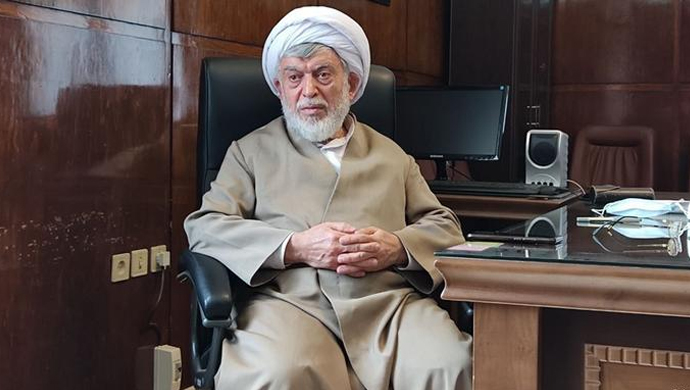Iran official acknowledges 1988 massacre, says genocide needed to preserve regime
Hossein-Ali Nayeri, the chief judge in the Iranian regime’s notorious 1988 massacre “Death Commission,” in Tehran, acknowledged the genocide in a recent interview and defended the mullahs’ action, adding that if not for those executions “the entire state may not exist today.”
“In those special circumstances, the country was in a crisis, meaning if it were not for the firm decision-making of [regime’s first supreme leader Ruhollah Khomeini] we would be in completely different conditions. The entire state may not exist today,” Nayeri said in an interview recently published on the “Islamic Revolution Documents Center” website on July 9.
In the summer of 1988 the mullahs’ regime, based on a fatwa issued by Khomeini, executed over 30,000 political prisoners, mostly members and supporters of the Iranian opposition People’s Mojahedin Organization of Iran (PMOI/MEK). Their bodies were secretly buried in mass graves checkered across the country.
Nayeri headed the Tehran “Death Commission,” the body responsible for deciding the fate of the prisoners in kangaroo trials that lasted a few minutes at best. Other members of the Death Commission included current regime President Ebrahim Raisi, former justice minister Mostafa Pour Mohammadi, and former Tehran Revolutionary Prosecutor Morteza Eshraghi.
Nayeri, the former deputy chief justice of the regime’s Supreme Court, acknowledged and fully defended the 1988 massacre in this latest interview, adding, “We had to hand down verdicts decisively. We couldn’t run the country by offering them hugs and kisses.”
None of the prisoners executed during the 1988 massacre had been sentenced to death and were serving their time and many had even served their entire jail time, held behind bars by the authorities for the sole purpose of eradicating their opponents, especially PMOI/MEK members and supporters.
Nayeri claimed the prisoners were executed because “they began creating riots in prison and they had their organizational structure in prison. They had launched a new organization inside the prisons,” claiming they were “cutting off telephone lines” and “breaking lamp bulbs.” These are the reasons Nayeri is citing for the genocide that has been described as the most horrific crime against humanity after World War II.
The indisputable fact, however, is that the prisoners were executed because they refused to disavow their affiliation with the MEK, after being asked by Nayeri and other members of the commission about their organizational affiliation.
Prior to this Nayeri had refrained from making public remarks about the 1988 massacre. His interview was published on the “Islamic Revolution Documents Center” website, which is run by Pour Mohammadi.
Raisi, who served as the representative of the regime’s chief prosecutor in the Death Commission, in his first press conference following his selection as the regime president responded to a question about the 1988 massacre by claiming he has been a “human rights advocate” since his first post in the mullahs’ regime and “should be praised” for his work.
Nayeri was appointed as head of the regime’s Death Commission, in charge of carrying out the executions, according to witnesses who have testified in the case of Hamid Noury, a former Iranian regime official whose trial was held in Sweden, and for a brief period in Albania where PMOI/MEK members testified.
Nayeri accused those being executed of establishing the building blocks of “new conspiracies” before they were hanged or killed by firing squads, the witnesses have said in court.
Noury is on trial in Stockholm for his direct role in the mass executions, specifically charged with international war crimes and human rights abuses, and may be sentenced to life in prison. During his testimony, Noury completely denied the 1988 massacre altogether and Nayeri’s recent interview delivers a blow to his claims.
Nayeri’s interview with the Islamic Revolution Document Center was published on July 9 as Noury awaits a verdict on Thursday, July 14, according to the Stockholm District Court.
Human rights organization has said foreign courts should hold hearings into the 1988 massacre and prosecute regime officials involved in the genocide, as Sweden has set a precedent with Noury.
The international community’s appeasement policy has emboldened the mullahs’ regime to have its officials publicly acknowledge the 1988 massacre, taking full advantage of an atmosphere of impunity.
This is in parallel to escalating domestic crackdown inside Iran, the regime’s ongoing pursuit of nuclear weapons, development of ballistic missiles and drones, continuous support for global terrorism, and abducting of foreign nationals to be used as hostages as a means of foreign policy to have its convicted terrorists and operatives released.
The Iranian regime should receive a firm message of resolve that its crimes will not go unaccounted for.


